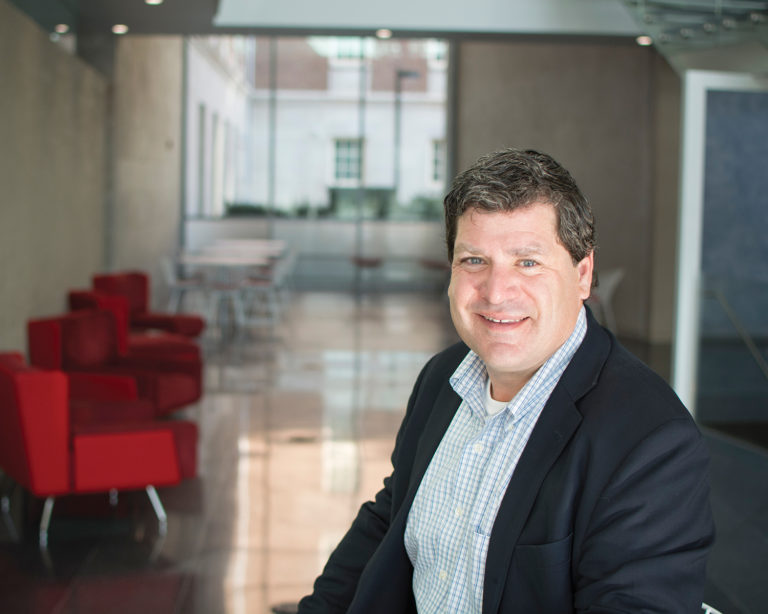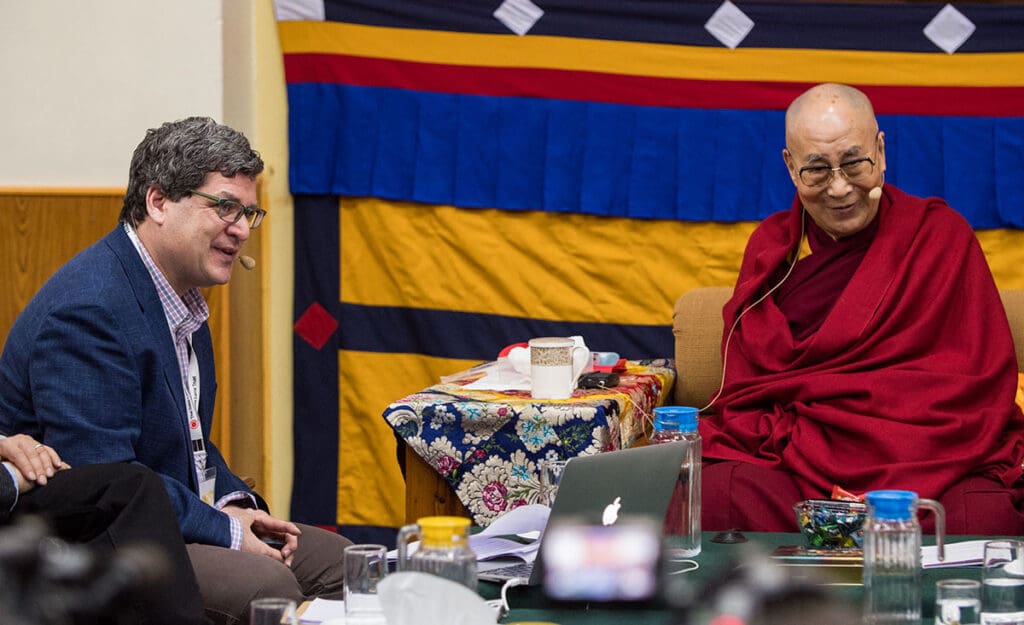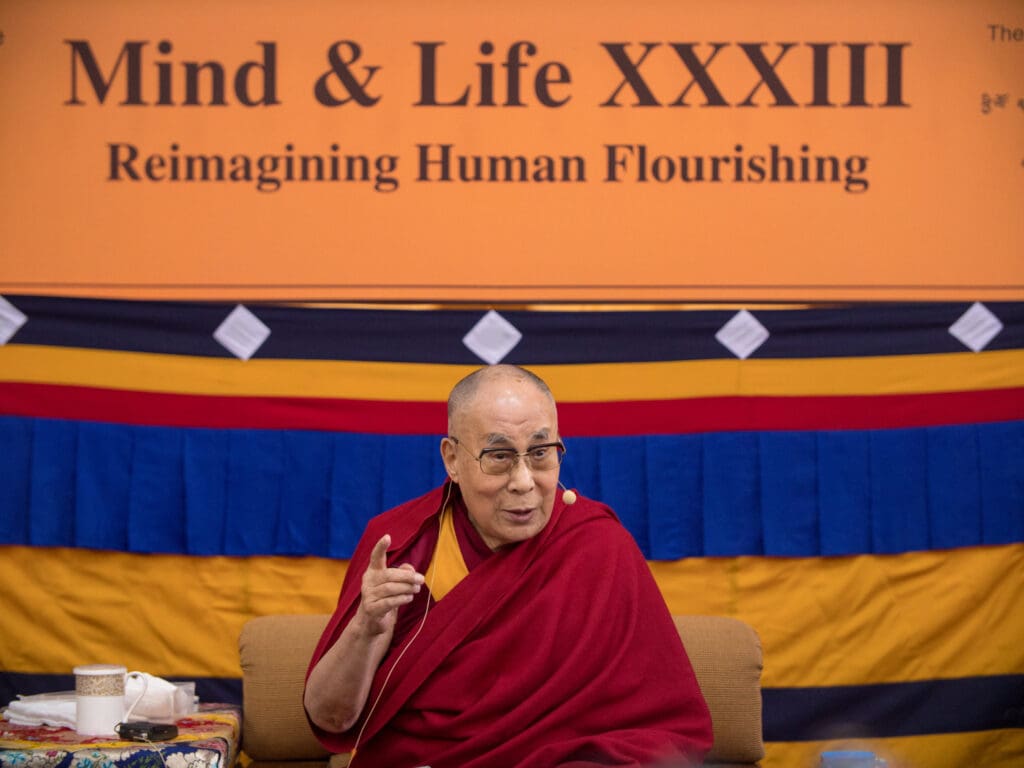
“We have to understand the families of knowledge that we can bring to bear on today’s complex challenges,” says Mind & Life Steering Council member Robert W. Roeser, who has served as co-creator, facilitator, and presenter at numerous Mind & Life events, and as a key advisor on initiatives such as the Education of the Heart Digital Dialogue.
In recognition of his invaluable contributions and countless hours of volunteer service, Rob is being honored with Mind & Life’s Annual Service Award. “Rob has brought great warmth and intellectual rigor to his many roles with Mind & Life—making people feel at home and creating the space for deep connections and powerful insights to emerge,” said Mind & Life President Susan Bauer-Wu, who will present the award on June 11 at the 2021 Summer Research Institute. “Rob deeply embodies our values of compassion, integrity, curiosity, inclusion, and excellence.”
Rob has brought great warmth and intellectual rigor to his many roles
-Susan Bauer-Wu
with Mind & Life—making people feel at home and creating the space
for deep connections and powerful insights to emerge.
“In my work with Rob, I’ve seen him grapple with his own humanity and challenging questions and issues in curating complex programs,” says Krista Weih, Mind & Life Director of Grants and Events. “He leads in a way that allows for ‘not knowing,’ and always puts first and foremost the question of how best to serve.”
How do you go about organizing spaces that facilitate creative emergence?
It begins with framing the inquiry. “The art of creating these spaces is trying to come to a generative question that’s equally accessible to different kinds of people and their disciplines,” says Rob. Next comes assembling diverse voices and perspectives that can speak to the issues at hand. Also critical is fostering an inclusive atmosphere where people not only feel welcomed and valued, but part of something larger.
Rob uses the metaphor of a forest with many types of trees to describe these transdisciplinary spaces—where the diversity of individuals creates a whole that is truly greater than the sum of its parts—where all have a place. “There should be mutual respect for diverse ways of knowing,” he says. “It’s important to keep a spirit of inquiry at the center of such meetings, a curiosity imbued with a sense of humility. ‘Not knowing’ is perhaps the key virtue.”
Part of what makes Mind & Life stand out, he adds, is this emphasis on diverse ways of knowing, including self-inquiry along with group inquiry. Events such as the annual Summer Research Institute offer participants ample opportunity to engage in contemplative practices in the context of larger thematic discussions that involve social issues, science, and philosophy.
Rob’s first encounter with Mind & Life was at the 2005 Dialogue with the Dalai Lama in Washington, DC. Not long afterward, he joined Mind & Life’s staff for a three-year stint as senior program coordinator. “It was an opportunity of a lifetime,” he says of the chance to build and plan programs that brought diverse people and voices together.
With schools serving as key cultural institutions shaping human development, Rob has devoted his career to exploring ways of promoting more equitable and compassionate school cultures—especially for adolescents, deepening his knowledge through two Fulbright Scholarships in India, where he studied holistic approaches to education in secondary schools. As Bennett Pierce Professor of Care, Compassion, and Human Development at Pennsylvania State University, his research focuses on the impact of schooling on students’ academic, social emotional, and ethical development, as well as on the implementation and evaluation of mindfulness and compassion programs for parents, teachers, and students in pre-K all the way through college settings.
In 2018, Rob presented at Mind & Life’s 33rd Dialogue with the Dalai Lama, “Reimagining Human Flourishing.” His talk focused on the psychology of ethical development, and specifically, when very young children begin to make ‘us-them’ distinctions. His reflections on the event and the systems level changes needed to scale an ‘education of the heart’ are captured in SEL 2.0 and the Case for Education Renewal.

Much like the Dalai Lama, Rob believes if you want to change the world, it’s important to start with educating and preparing young people to navigate life’s challenges and be a force for good. His passion for whole student education is reflected in his work as a co-creator of the Student Flourishing Initiative, a multi-university collaboration designed to empower college students to engage with human flourishing through a multidisciplinary approach—combining science, the arts, and humanities—and through developing their own values and capacities through experiential practices.
Asked ‘what’s next?’, he speaks to wanting to expand the mindfulness and compassion movement in schools to appeal to a broader range of racial, ethnic, and religious identities. One way of doing so is bringing in more of nature practices and the global arts—poetry, movement, and music, along with integrating contemplative practices around mindful awareness and compassion into the teaching of traditional subjects like English, math, and history. Acknowledging that contemporary programs may lack the ‘juiciness that comes with engaging with the arts and digging in the dirt,’ he’s looking at how to inject more joy and ‘eros’ into contemplative forms of education.
Whether designing multi-day programs for scientists and scholars or developing curricula for university students, Rob is guided by a simple maxim articulated by Mind & Life Co-founder Francisco Varela. Despite there being many ways of knowing, Francisco said, “in the end, there is only one wisdom, which is based on love.”
This attention to cultivating wisdom early in life, and allowing its downstream effects to flow and flower naturally in societies all over the globe, is the great promise scholars like Rob see in the transformation of education in the 21st century. Indeed, “our very lives together on this precious planet seem to depend on this transformation,” he says.



